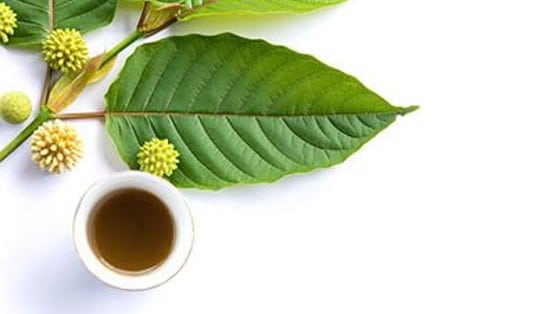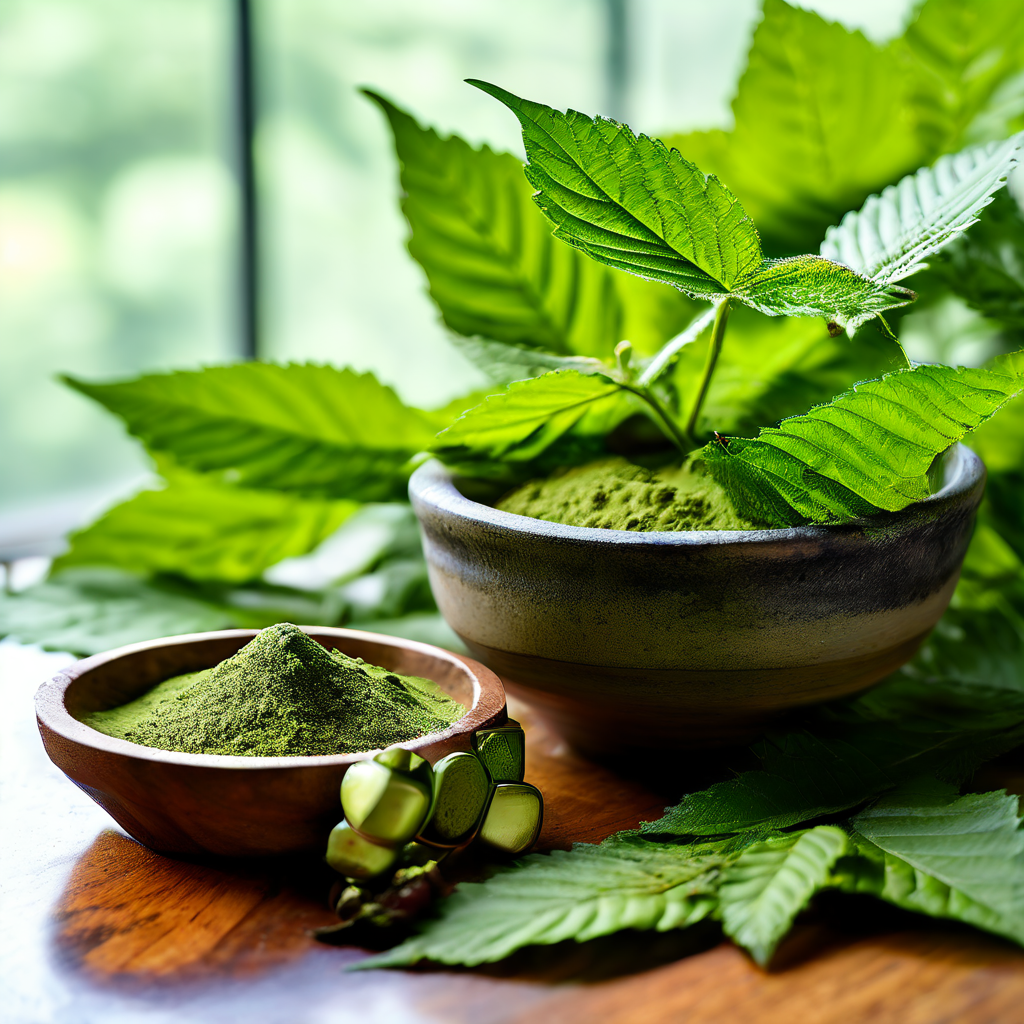North Carolina lawmakers are advancing legislation that would make kratom a controlled substance, aligning it with the state’s drug laws. The Senate bill, scheduled for a vote this week, aims to curb youth access to hemp, THC, and kratom products, citing concerns about their unregulated sale and potential health risks to minors. While the House has passed a version that would only ban synthetic kratom and regulate natural forms, the Senate proposal could treat all kratom similarly to marijuana, drawing criticism from industry advocates. Walker Gallman of the Global Kratom Coalition urged lawmakers to distinguish between natural and synthetic kratom, warning that a broad ban could deny access to those seeking natural relief. The debate highlights ongoing uncertainty over how best to regulate emerging substances. Read more at WUNC.
Rhode Island Bill Targets Synthetic Kratom, Not Natural Plant
Rhode Island’s House Bill 5565 seeks to regulate kratom by banning synthetic and semi-synthetic analogs, while allowing the sale of natural kratom products. Lora Romney, president of the International Plant & Herbal Alliance, argues in a recent Providence Journal opinion piece that the real danger lies in adulterated products containing high concentrations of 7-hydroxymitragynine (7-OH), which are engineered to spike psychoactive effects and misrepresent kratom’s safety profile.
Romney emphasizes that natural kratom, supported by extensive research and millions in federal funding, is not dangerously addictive and is well-tolerated at various doses. She points out that the FDA has not declared kratom dangerous, and that many adverse events blamed on kratom are actually linked to synthetic analogs. House Bill 5565 aims to ensure only safe, properly labeled, and age-restricted kratom products remain available to Rhode Islanders.
Colorado Enacts Daniel Bregger Act to Strengthen Kratom Safety
Colorado has passed the Daniel Bregger Act, a major update to its Kratom Consumer Protection Act, designed to enhance consumer safety and restrict dangerous high-potency kratom products. Signed by Governor Jared Polis, the law mandates clear labeling, bans synthetic and semi-synthetic kratom alkaloids, and limits the presence of 7-hydroxymitragynine to 2% in products. It also prohibits sales to individuals under 21, bans kratom vaporizers, and restricts marketing aimed at children.
Named in memory of Dan Bregger, who died in 2021 after consuming a mislabeled, highly concentrated kratom extract, the act honors his legacy and the advocacy of his father, David Bregger. The Global Kratom Coalition praised the legislation as a model for evidence-based regulation and consumer protection.
Rhode Island House Advances Kratom Legalization Bill Amid Budget Pressures
The Rhode Island House of Representatives has passed a revised bill to legalize and regulate kratom, a psychoactive herb derived from an Indonesian tree, as the state seeks new revenue sources during a budget crunch. The measure, known as the Rhode Island Kratom Act (H5566A), was approved on May 29 by a 40-23 vote and now awaits Senate consideration.
Unlike last year’s version—vetoed by Governor Dan McKee—the new bill includes a 15% tax on kratom products and requires retailers to obtain licenses from the Department of Health. While the Rhode Island Medical Society remains opposed, key state agencies have adopted a neutral stance, reflecting a broader compromise. Supporters argue regulation will curb black market sales and ensure product safety, though medical concerns about kratom’s risks persist. The bill’s fate now rests with the Senate and, ultimately, the governor’s review. For more details, see the original article in the Providence Journal.
Colorado’s Kratom Regulation Bill Awaits Governor’s Decision
Colorado lawmakers have passed a bill that would impose stricter regulations on kratom, an herbal supplement gaining popularity across the U.S. The legislation, known as Senate Bill 72, is named after Daniel Bregger, a Denver resident who died in 2021 after consuming kratom and diphenhydramine. If signed into law, the bill would require enhanced labeling, restrict sales to individuals under 21, and set limits on the potent compound 7-hydroxymitragynine (7-OH) found in kratom products.
Supporters say these measures will help prevent further tragedies and inform consumers, while industry groups argue the bill’s limits are unclear and could create confusion in the market. The bill’s unusual path to passage included a rare “super motion” to fast-track it through the legislature. Governor Jared Polis has until June 6 to decide whether to sign or veto the measure. For more details, see the full report on Colorado’s kratom regulation efforts in The Denver Post.
Nebraska Enacts Comprehensive Kratom Regulations, Setting a New Benchmark for Consumer Safety
Nebraska lawmakers have approved the Kratom Consumer Protection Act (LB 230), introducing sweeping new standards for the sale and marketing of kratom products across the state. Signed into law after strong advocacy from the Global Kratom Coalition and other stakeholders, the legislation aims to ensure the safety of consumers while preserving access to natural kratom.
Key measures in the new law include restricting kratom sales to those aged 21 and over, banning advertising targeted at minors, and mandating clear warnings for pregnant or breastfeeding women. Notably, the Act imposes a strict cap on the amount of 7-hydroxymitragynine—a powerful alkaloid—permitted in kratom products, directly addressing concerns over synthetic versions that have emerged nationwide.
Supporters praise Nebraska’s approach as a balanced model that protects public health without banning kratom outright. The Global Kratom Coalition urges other states to consider similar, science-based regulations.
Read the full story here.
South Carolina Enacts Kratom Consumer Protection Act
South Carolina has joined a growing list of states regulating kratom, with the Governor signing the Kratom Consumer Protection Act into law on May 13, 2025. This legislation establishes important safeguards, including prohibiting the sale of kratom to anyone under 21 and requiring manufacturers to provide clear, accurate labeling on all kratom products. The new law aims to enhance consumer safety and transparency in the marketplace. South Carolina’s decision is especially significant given past efforts to ban or criminalize kratom in the state. Supporters believe this move represents meaningful progress for responsible kratom use and consumer protection. For further information, see the official announcement from the American Kratom Association here.
Marion and Herrin Restrict Kratom Sales Following Council Decisions
Two communities in Williamson County, Illinois, have recently updated their local ordinances to restrict the sale and delivery of kratom and its derivatives. The City of Marion and the City of Herrin both approved new measures during city council meetings on May 12, affecting retailers and consumers who purchase kratom products at gas stations and stores.
Kratom, a plant-based product often sold in convenience outlets, has been the subject of ongoing regulatory discussions across the country. The new ordinances reflect a growing trend among local governments to address the sale of kratom at the community level.
For more details on these developments, including official statements from the cities, visit the original report at WSIL-TV’s website.
Colorado Advances Kratom Product Registration Bill
Colorado lawmakers are moving forward with Senate Bill 72, which would require kratom manufacturers to register their products annually with the Department of Revenue. The bill sets out clear standards for labeling, packaging, and product composition, aiming to promote transparency and consumer safety. Manufacturers must pay annual fees, provide proof of federal registration, and comply with state requirements.
Penalties for non-compliance can include fines and, for repeat violations, temporary bans from the Colorado market. The legislation also allows local governments to adopt stricter rules if they choose. Supporters say these measures will help ensure the integrity of kratom products as the industry grows in Colorado.
Louisiana Senate Advances Statewide Kratom Ban Bill
A bill proposing a statewide ban on kratom is moving to the full Louisiana Senate for consideration after passing a key committee this week. Kratom, a herbal supplement commonly sold as a dietary aid, mood booster, and pain reliever, is already banned in some parishes but remains widely available in shops and gas stations across the state.
Supporters of the ban, including many law enforcement officials, argue that kratom can be addictive and poses public safety concerns. However, others view it as a safer alternative to prescription painkillers, with some advocates highlighting its role in helping individuals avoid opioids.
If the legislation passes, possession or distribution of kratom could become a criminal offense, with penalties including fines and possible jail time. The proposed law could take effect as early as August. For more details, see the original report at WWL-TV.
Clinton Township Board Debates Kratom Regulation at Special Meeting
The Clinton Township Board of Trustees held a special meeting on April 21 to discuss potential regulation of kratom, an herbal substance derived from Southeast Asia that can produce opioid- and stimulant-like effects. Trustee Shannon King led the session, which brought together advocates and critics of kratom. While no immediate action was taken, some trustees expressed interest in waiting for possible state-level legislation.
Speakers highlighted both risks and benefits. Critics pointed to the lack of oversight, potential for abuse, and health risks such as cardiovascular and liver issues. Supporters, including local residents, described kratom as a valuable tool for managing pain and combating opioid addiction, though they agreed regulation is needed to ensure safety and quality. The board is considering options ranging from a local ban to waiting for state action. Read the full story at C&G Newspapers.
Mississippi Sets Age Limit for Kratom Sales as Local Bans Grow
Mississippi is set to implement new regulations on kratom, with House Bill 1077 awaiting the governor’s signature. If signed, the law will prohibit the sale of kratom products to anyone under 21 starting July 1, 2025. The legislation also bans synthetic kratom and caps product potency, while preserving the right of counties and cities to enact their own bans.
Local business owners, such as Scott Carmichael in Jones County, have expressed concerns about the economic impact, noting that customers often travel to neighboring areas where kratom remains legal. The new law will require retailers to check IDs much like with alcohol and tobacco, aiming to keep kratom out of the hands of minors. For more on the evolving landscape of regulating kratom in Mississippi, see the original report.
North Dakota Senate Opts for Kratom Study Over Immediate Regulation
The North Dakota Senate has decided to pause on regulating kratom, a plant native to Southeast Asia known for its use as an energy booster and pain management aid. Instead, lawmakers voted 31-15 to convert House Bill 1566 into a call for a legislative study on kratom’s uses and potential regulations. The bill, which previously proposed direct regulation, will now return to the House for further consideration.
The decision reflects ongoing debates in the legislature, with some members advocating for more information before enacting new rules. Senator Jeff Magrum, who sponsored the amendment, emphasized the need for a deeper understanding of kratom before moving forward. The study will examine both the benefits and regulatory considerations for kratom products, which remain widely available to consumers, particularly online.
For more details, see the coverage at Knox Radio.
Tennessee Lawmakers Advance Resolution to Ban Kratom Statewide
The Tennessee legislature has advanced House Joint Resolution 147, a measure advocating for a statewide ban on kratom, a plant-based supplement often marketed for pain relief and stress management. The resolution, championed by State Representative Esther Helton-Haynes of East Ridge, calls for strict legislation to limit kratom’s availability in Tennessee. Helton-Haynes cited a recent case involving a Chattanooga man whose death was reportedly linked to an interaction between kratom and prescription medication.
Kratom, which is advertised for its opioid- and stimulant-like effects, remains legal in many states but is listed as a “drug and chemical of concern” by the U.S. Drug Enforcement Administration. The resolution now heads to the Senate and, if approved, will move to Governor Bill Lee’s desk for consideration. For more details, see the original article on MSN News.
Mississippi Moves Forward with New Kratom Regulations
Mississippi lawmakers have advanced two bills aimed at regulating the sale of kratom, an herbal product widely used for its potential health benefits. House Bill 1077, which has passed both chambers, would raise the minimum purchasing age for kratom to 21 and ban synthetic kratom products. These measures are intended to ensure consumer safety while maintaining access to pure kratom products.
The legislation has garnered mixed reactions. Advocates, such as Christina Dent of End It For Good, praised the approach for balancing regulation with accessibility, emphasizing harm reduction. However, some lawmakers, like Rep. Stacey Hobgood-Wilkes, expressed disappointment that stricter measures—such as classifying kratom as a Schedule III controlled substance—were not adopted.
Additionally, House Bill 1896 proposes a 25% excise tax on kratom products, raising concerns about affordability and the potential for underground markets. Local ordinances banning kratom remain unaffected by these bills, leaving some users worried about inconsistent regulations across the state.
Texas Senate Considers Bill to Ban Kratom Despite Potential Benefits
The Texas State Senate is currently reviewing Senate Bill 1868, which, if passed, would ban the sale of kratom in the state. Kratom, derived from a Southeast Asian tree, has gained popularity for its potential to relieve pain, anxiety, and depression.
Proponents of kratom argue that the plant offers a natural alternative to prescription medications, particularly opioids, for managing chronic pain. Some studies suggest kratom may have a lower risk of addiction and fewer side effects than traditional painkillers. Many people who struggle with opioid addiction find kratom helpful in managing withdrawal symptoms and reducing cravings.
Despite these potential benefits, concerns persist regarding the safety and regulation of kratom products, which has fueled the proposed ban. For more information on the bill and the debate surrounding kratom, you can read the full article on MSN.
Florida Bill Seeks Stricter Regulations on Kratom Sales
A new bill introduced in Florida aims to tighten regulations on the sale of kratom, a herbal supplement derived from the leaves of the Mitragyna speciosa tree. The proposed legislation would raise the minimum purchasing age from 21 to 24 and mandate that kratom products meet stringent labeling and quality standards. Retailers caught violating these rules could face fines of up to $500 per infraction.
Supporters of the bill argue that enhanced oversight is necessary to ensure consumer safety, given concerns about inconsistent product quality and potential misuse. However, critics worry that the proposed changes could unfairly burden small businesses and restrict access for responsible adult consumers.
Kratom has gained popularity in recent years as a natural remedy for pain and anxiety, but its legal status remains contentious across the U.S. For more details on this developing story, visit MSN.
Dracut Bans Kratom Despite Advocates Highlighting Its Benefits
The town of Dracut has moved to ban kratom, an herbal supplement with a growing base of supporters who tout its potential benefits for pain relief, energy, and overall well-being. The decision, made during a recent Board of Selectmen meeting, reflects concerns from some officials about the substance’s safety. However, many advocates argue that kratom is a misunderstood natural remedy.
Derived from the leaves of a Southeast Asian tree, kratom has been used for centuries in traditional medicine. Supporters point out that it offers a natural alternative to prescription painkillers and can assist those seeking relief from chronic conditions. While critics cite concerns about misuse, proponents emphasize the need for regulation rather than outright bans, allowing consumers to access safe and reliable products.
For more on this story, visit The Lowell Sun here.
Florida Senate Committee Advances Kratom Consumer Protection Act
A Florida Senate committee has advanced a bill aimed at regulating kratom. On Wednesday, the Senate Commerce and Tourism Committee voted 8 to 1 in favor of Senate Bill 1734, known as the Florida Kratom Consumer Protection Act. If passed, this legislation would establish comprehensive statewide regulations for kratom processing and sales, ensuring consumer safety and product quality. (The Marijuana Herald)
The bill includes strict safety guidelines, prohibiting the addition of non-kratom substances and setting limits on the concentrations of mitragynine and 7-hydroxymitragynine. It also mandates clear labeling, including ingredients, serving sizes, and potential effects. Sales to individuals under 21 would be prohibited, and all kratom processors would need to register with the FDA and hold the necessary state permits. SB 1734 will now move to the Senate Agriculture, Environment, and General Government Appropriations Committee for further consideration.
States Grapple with Kratom Regulation Amid Federal Absence
With the federal government yet to take definitive action, individual states are increasingly wrestling with how to regulate kratom, a plant-derived substance used by some for pain relief and energy. The Pain News Network reports that states like Montana are considering measures to ban sales to minors and mandate specific product labeling.
The debate around kratom centers on its potential health effects and the risk of addiction. Proponents argue that kratom offers a natural alternative for managing pain, while opponents voice concerns about safety and the lack of standardized regulations. As states navigate these conflicting viewpoints, the future of kratom regulation remains uncertain.
Read the full story on Pain News Network.




















